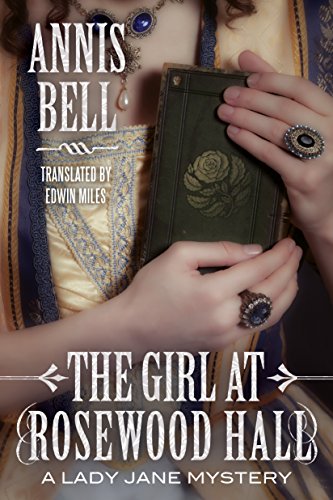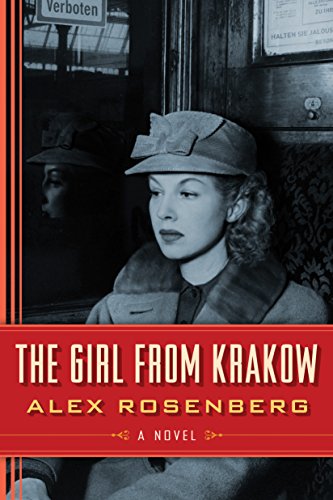Since
Atlanta, she had looked out the dining-car window with a delight almost
physical. Over her breakfast coffee, she watched the last of Georgia’s
hills recede and the red earth appear, and with it tin-roofed houses set
in the middle of swept yards, and in the yards the inevitable verbena
grew, surrounded by whitewashed tires. She grinned when she saw her
first TV antenna atop an unpainted Negro house; as they multiplied, her
joy rose.
Jean Louise Finch always made this journey by air, but she decided to
go by train from New York to Maycomb Junction on her fifth annual trip
home. For one thing, she had the life scared out of her the last time
she was on a plane: the pilot elected to fly through a tornado. For
another thing, flying home meant her father rising at three in the
morning, driving a hundred miles to meet her in Mobile, and doing a full
day’s work afterwards: he was seventy-two now and this was no longer
fair.
She was glad she had decided to go by train. Trains had changed since
her childhood, and the novelty of the experience amused her: a fat
genie of a porter materialized when she pressed a button on a wall; at
her bidding a stainless steel washbasin popped out of another wall, and
there was a john one could prop one’s feet on. She resolved not to be
intimidated by several messages stenciled around her compartment – a
roomette, they called it – but when she went to bed the night before,
she succeeded in folding herself up into the wall because she had
ignored an injunction to PULL THIS LEVER DOWN OVER BRACKETS, a situation
remedied by the porter to her embarrassment, as her habit was to sleep
only in pajama tops.
Luckily, he happened to be patrolling the corridor when the trap
snapped shut with her in it: “I’ll get you out, Miss,” he called in
answer to her poundings from within. “No please,” she said. “Just tell
me how to get out.” “I can do it with my back turned,” he said, and did.
When she awoke that morning the train was switching and chugging in
the Atlanta yards, but in obedience to another sign in her compartment
she stayed in bed until College Park flashed by. When she dressed, she
put on her Maycomb clothes: gray slacks, a black sleeveless blouse,
white socks, and loafers. Although it was four hours away, she could
hear her aunt’s sniff of disapproval.
When she was starting on her fourth cup of coffee the Crescent
Limited honked like a giant goose at its northbound mate and rumbled
across the Chattahoochee into Alabama.
The
Chattahoochee is wide, flat, and muddy. It was low today; a yellow
sandbar had reduced its flow to a trickle. Perhaps it sings in the
wintertime, she thought: I do not remember a line of that poem. Piping
down the valleys wild? No. Did he write to a waterfowl, or was it a
waterfall?
She sternly repressed a tendency to boisterousness when she reflected
that Sidney Lanier must have been somewhat like her long-departed
cousin, Joshua Singleton St Clair, whose private literary preserves
stretched from the Black Belt to Bayou La Batre. Jean Louise’s aunt
often held up Cousin Joshua to her as a family example not lightly to be
discountenanced: he was a splendid figure of a man, he was a poet, he
was cut off in his prime, and Jean Louise would do well to remember that
he was a credit to the family. His pictures did the family well –
Cousin Joshua looked like a ratty Algernon Swinburne.
Jean Louise smiled to herself when she remembered her father telling
her the rest of it. Cousin Joshua was cut off, all right, not by the
hand of God but by Caesar’s hosts.
When at the University, Cousin Joshua studied too hard and thought
too much; in fact, he read himself straight out of the nineteenth
century. He affected an Inverness cape and wore jackboots he had a
blacksmith make up from his own design. Cousin Joshua was frustrated by
the authorities when he fired upon the president of the University, who
in his opinion was little more than a sewage disposal expert. This was
no doubt true, but an idle excuse for assault with a deadly weapon.
After much passing around of money Cousin Joshua was moved across the
tracks and placed in state accommodations for the irresponsible, where
he remained for the rest of his days. They said he was reasonable in
every respect until someone mentioned that president’s name, then his
face would become distorted, he would assume a whooping crane attitude
and hold it for eight hours or more, and nothing or nobody could make
him lower his leg until he forgot about that man. On clear days Cousin
Joshua read Greek, and he left a thin volume of verse printed privately
by a firm in Tuscaloosa. The poetry was so ahead of its time no one has
deciphered it yet, but Jean Louise’s aunt keeps it displayed casually
and prominently on a table in the living-room.
Jean Louise laughed aloud, then looked around to see if anyone had
heard her. Her father had a way of undermining his sister’s lectures on
the innate superiority of any given Finch: he always told his daughter
the rest of it, quietly and solemnly, but Jean Louise sometimes thought
she detected an unmistakably profane glint in Atticus Finch’s eyes, or
was it merely the light hitting his glasses? She never knew.
The countryside and the train had subsided to a gentle roll, and she
could see nothing but pastureland and black cows from window to horizon.
She wondered why she had never thought her country beautiful.
The station at Montgomery nestled in an elbow of the Alabama, and
when she got off the train to stretch her legs, the returning familiar
with its drabness, lights, and curious odors rose to meet her. There is
something missing, she thought. Hotboxes, that’s it. A man goes along
under the train with a crowbar. There is a clank and then
s-sss-sss, white smoke comes up and you think you’re inside a chafing dish. These things run on oil now.
For no reason an ancient fear gnawed her. She had not been in this
station for twenty years, but when she was a child and went to the
capital with Atticus, she was terrified lest the swaying train plunge
down the riverbank and drown them all. But when she boarded again for
home, she forgot.
The train clacketed through pine forests and honked derisively at a
gaily painted bell-funneled museum piece sidetracked in a clearing. It
bore the sign of a lumber concern, and the Crescent Limited could have
swallowed it whole with room to spare. Greenville, Evergreen, Maycomb
Junction.
She had told the conductor not to forget to let her off, and because
the conductor was an elderly man, she anticipated his joke: he would
rush at Maycomb Junction like a bat out of hell and stop the train a
quarter of a mile past the little station, then when he bade her goodbye
he would say he was sorry, he almost forgot. Trains changed; conductors
never did. Being funny at flag stops with young ladies was a mark of
the profession, and Atticus, who could predict the actions of every
conductor from New Orleans to Cincinnati, would be waiting accordingly
not six steps away from her point of debarkation.
Home was Maycomb County, a gerrymander some seventy miles long and
spreading thirty miles at its widest point, a wilderness dotted with
tiny settlements the largest of which was Maycomb, the county seat.
Until comparatively recently in its history, Maycomb County was so cut
off from the rest of the nation that some of its citizens, unaware of
the South’s political predilections over the past ninety years, still
voted Republican. No trains went there – Maycomb Junction, a courtesy
title, was located in Abbott County, twenty miles away. Bus service was
erratic and seemed to go nowhere, but the Federal Government had forced a
highway or two through the swamps, thus giving the citizens an
opportunity for free egress. But few people took advantage of the roads,
and why should they? If you did not want much, there was plenty.
The county and the town were named for a Colonel Mason Maycomb, a man
whose misplaced self-confidence and overweening willfulness brought
confusion and confoundment to all who rode with him in the Creek Indian
Wars. The territory in which he operated was vaguely hilly in the north
and flat in the south, on the fringes of the coastal plain. Colonel
Maycomb, convinced that Indians hated to fight on flat land, scoured the
northern reaches of the territory looking for them. When his general
discovered that Maycomb was meandering in the hills while the Creeks
were lurking in every pine thicket in the south, he dispatched a
friendly Indian runner to Maycomb with the message,
Move south, damn you.
Maycomb was convinced this was a Creek plot to trap him (was there not a
blue-eyed, red-headed devil leading them?), he made the friendly Indian
runner his prisoner, and he moved farther north until his forces became
hopelessly lost in the forest primeval, where they sat out the wars in
considerable bewilderment.
After enough years had passed to convince Colonel Maycomb that the
message might have been genuine after all, he began a purposeful march
to the south, and on the way his troops encountered settlers moving
inland, who told them the Indian Wars were about over. The troops and
the settlers were friendly enough to become Jean Louise Finch’s
ancestors, and Colonel Maycomb pressed on to what is now Mobile to make
sure his exploits were given due credit. Recorded history’s version does
not coincide with the truth, but these are the facts, because they were
passed down by word of mouth through the years, and every Maycombian
knows them.
“…
get your bags, Miss,” the porter said. Jean Louise followed him
from the lounge car to her compartment. She took two dollars from her
billfold: one for routine, one for releasing her last night. The train,
of course, rushed like a bat out of hell past the station and came to a
stop 440 yards beyond it. The conductor appeared, grinning, and said he
was sorry, he almost forgot. Jean Louise grinned back and waited
impatiently for the porter to put the yellow step in place. He handed
her down and she gave him the two bills.
Her father was not waiting for her.
She looked up the track toward the station and saw a tall man standing on the tiny platform. He jumped down and ran to meet her.
He grabbed her in a bear hug, put her from him, kissed her hard on
the mouth, then kissed her gently. “Not here, Hank,” she murmured, much
pleased.
“
Hush, girl,” he said, holding her face in place. “I’ll kiss you on the courthouse steps if I want to.”
The possessor of the right to kiss her on the courthouse steps was
Henry Clinton, her lifelong friend, her brother’s comrade, and if he
kept on kissing her like that, her husband. Love whom you will but marry
your own kind was a dictum amounting to instinct within her. Henry
Clinton was Jean Louise’s own kind, and now she did not consider the
dictum particularly harsh.
They walked arm-in-arm down the track to collect her suitcase. “How’s Atticus?” she said.
“His hands and shoulders are giving him fits today.”
“He can’t drive when they’re like that, can he?”
Henry closed the fingers of his right hand halfway and said, “He
can’t close them any more than this. Miss Alexandra has to tie his shoes
and button his shirts when they’re like that. He can’t even hold a
razor.”
Jean Louise shook her head. She was too old to rail against the
inequity of it, but too young to accept her father’s crippling disease
without putting up some kind of fight. “Isn’t there anything they can
do?”
“You know there isn’t,” Henry said. “He takes seventy grains of aspirin a day and that’s all.”
Henry picked up her heavy suitcase, and they walked back toward the
car. She wondered how she would behave when her time came to hurt day in
and day out. Hardly like Atticus: if you asked him how he was feeling
he would tell you, but he never complained; his disposition remained the
same, so in order to find out how he was feeling, you had to ask him.
The only way Henry found out about it was by accident. One day when
they were in the records vault at the courthouse running a land title,
Atticus hauled out a heavy mortgage book, turned stark white, and
dropped it. “What’s the matter?” Henry had said. “Rheumatoid arthritis.
Can you pick it up for me?” said Atticus. Henry asked him how long he’d
had it; Atticus said six months. Did Jean Louise know it? No. Then he’d
better tell her. “If you tell her she’ll be down here trying to nurse
me. The only remedy for this is not to let it beat you.” The subject was
closed.
“Want to drive?” said Henry.
“Don’t be silly,” she said. Although she was a respectable driver,
she hated to operate anything mechanical more complicated than a safety
pin: folding lawn chairs were a source of profound irritation to her;
she had never learned to ride a bicycle or use a typewriter; she fished
with a pole. Her favorite game was golf because its essential principles
consisted of a stick, a small ball, and a state of mind.
With green envy, she watched Henry’s effortless mastery of the
automobile. Cars are his servants, she thought. “Power steering?
Automatic transmission?” she said.
“You bet,” he said.
“Well, what if everything shuts off and you don’t have any gears to shift. You’d be in trouble then, wouldn’t you?”
“But everything won’t shut off.”
“How do you know?”
“That’s what faith is. Come here.”
Faith in General Motors. She put her head on his shoulder. “Hank,” she said presently. “What really happened?”
This was an old joke between them. A pink scar started under his
right eye, hit the corner of his nose, and ran diagonally across his
upper lip. Behind his lip were six false front teeth not even Jean
Louise could induce him to take out and show her. He came home from the
war with them. A German, more to express his displeasure at the end of
the war than anything else, had bashed him in the face with a rifle
butt. Jean Louise had chosen to think this a likely story: what with
guns that shot over the horizon, B-17s, V-bombs, and the like, Henry had
probably not been within spitting distance of the Germans.
“
Okay, honey,” he said. “We were down in a cellar in Berlin.
Everybody had too much to drink and a fight started – you like to hear
the believable, don’t you? Now will you marry me?”
“Not yet.”
“Why?”
“I want to be like Dr Schweitzer and play until I’m thirty.”
“He played all right,” said Henry grimly.
Jean Louise moved under his arm. “You know what I mean,” she said.
“Yes.”
There was no finer young man, said the people of Maycomb, than Henry
Clinton. Jean Louise agreed. Henry was from the southern end of the
county. His father had left his mother soon after Henry was born, and
she worked night and day in her little crossroads store to send Henry
through the Maycomb public schools. Henry, from the time he was twelve,
boarded across the street from the Finch house, and this in itself put
him on a higher plane: he was his own master, free from the authority of
cooks, yardmen, and parents. He was also four years her senior, which
made a difference then. He teased her; she adored him. When he was
fourteen his mother died, leaving him next to nothing. Atticus Finch
looked after what little money there was from the sale of the store –
her funeral expenses took most of it – he secretly supplemented it with
money of his own, and got Henry a job clerking in the Jitney Jungle
after school. Henry graduated and went into the Army, and after the war
he went to the University and studied law.
Just about that time, Jean Louise’s brother dropped dead in his
tracks one day, and after the nightmare of that was over, Atticus, who
had always thought of leaving his practice to his son, looked around for
another young man. It was natural for him to engage Henry, and in due
course Henry became Atticus’s legman, his eyes, and his hands. Henry had
always respected Atticus Finch; soon it melded to affection and Henry
regarded him as a father.
He did not regard Jean Louise as a sister. In the years when he was
away at the war and the University, she had turned from an overalled,
fractious, gun-slinging creature into a reasonable facsimile of a human
being. He began dating her on her annual two-week visits home, and
although she still moved like a thirteen-year-old boy and abjured most
feminine adornment, he found something so intensely feminine about her
that he fell in love. She was easy to look at and easy to be with most
of the time, but she was in no sense of the word an easy person. She was
afflicted with a restlessness of spirit he could not guess at, but he
knew she was the one for him. He would protect her; he would marry her.
“Tired of New York?” he said.
“No.”
“Give me a free hand for these two weeks and I’ll make you tired of it.”
“Is that an improper suggestion?”
“Yes.”
“Go to hell, then.”
Henry stopped the car. He turned off the ignition switch, slewed
around, and looked at her. She knew when he became serious about
something: his crew cut bristled like an angry brush, his face colored,
its scar reddened.
“Honey, do you want me to put it like a gentleman? Miss Jean Louise, I
have now reached an economic status that can provide for the support of
two. I, like Israel of Old, have labored seven years in the vineyards
of the University and the pastures of your daddy’s office for you –”
“I’ll tell Atticus to make it seven more.”
“Hateful.”
“Besides,” she said, “it was Jacob anyway. No, they were the same.
They always changed their names every third verse. How’s Aunty?”
“You know good and well she’s been fine for thirty years. Don’t change the subject.”
Jean Louise’s eyebrows flickered. “Henry,” she said primly, “I’ll have an affair with you but I won’t marry you.”
It was exactly right.
“Don’t be such a damn child, Jean Louise!” Henry sputtered, and
forgetting the latest dispensations from General Motors, grabbed for a
gearshift and stomped at a clutch. These denied him, he wrenched the
ignition key violently, pressed some buttons, and the big car glided
slowly and smoothly down the highway.
“Slow pickup, isn’t it?” she said. “No good for city driving.” Henry glared at her. “What do you mean by that?”
In another minute this would become a quarrel. He was serious. She’d
better make him furious, thus silent, so she could think about it.
“Where’d you get that appalling tie?” she said.
Now.
She was almost in love with him. No, that’s impossible, she thought:
either you are or you aren’t. Love’s the only thing in this world that
is unequivocal. There are different kinds of love, certainly, but it’s a
you-do or you-don’t proposition with them all.
She was a person who, when confronted with an easy way out, always
took the hard way. The easy way out of this would be to marry Hank and
let him labor for her. After a few years, when the children were
waist-high, the man would come along whom she should have married in the
first place. There would be searchings of hearts, fevers and frets,
long looks at each other on the post office steps, and misery for
everybody. The hollering and the high-mindedness over, all that would be
left would be another shabby little affair à la the Birmingham country
club set, and a self-constructed private Gehenna with the latest
Westinghouse appliances. Hank didn’t deserve that.
No. For the present she would pursue the stony path of spinsterhood. She set about restoring peace with honor:
“Honey, I’m sorry, truly sorry,” she said, and she was.
“That’s okay,” said Henry, and slapped her knee. “It’s just that I could kill you sometimes.”
“I know I’m hateful.”
Henry looked at her. “You’re an odd one, sweet. You can’t dissemble.”
She looked at him. “What are you talking about?”
“Well, as a general rule, most women, before they’ve got ’em, present
to their men smiling, agreeing faces. They hide their thoughts. You
now, when you’re feeling hateful, honey, you
are hateful.”
“Isn’t it fairer for a man to be able to see what he’s letting himself in for?”
“Yes, but don’t you see you’ll never catch a man that way?”
She bit her tongue on the obvious, and said, “How do I go about being an enchantress?”
Henry warmed to his subject. At thirty, he was an adviser. Maybe
because he was a lawyer. “First,” he said dispassionately, “hold your
tongue. Don’t argue with a man, especially when you know you can beat
him. Smile a lot. Make him feel big. Tell him how wonderful he is, and
wait on him.”
She smiled brilliantly and said, “Hank, I agree with everything
you’ve said. You are the most perspicacious individual I’ve met in
years, you are six feet five, and may I light your cigarette? How’s
that?”
“Awful.”
They were friends again.
- This is an extract from Go Set A Watchman by Harper Lee, published
on 14 July by William Heinemann.
 Bantam
Bantam









